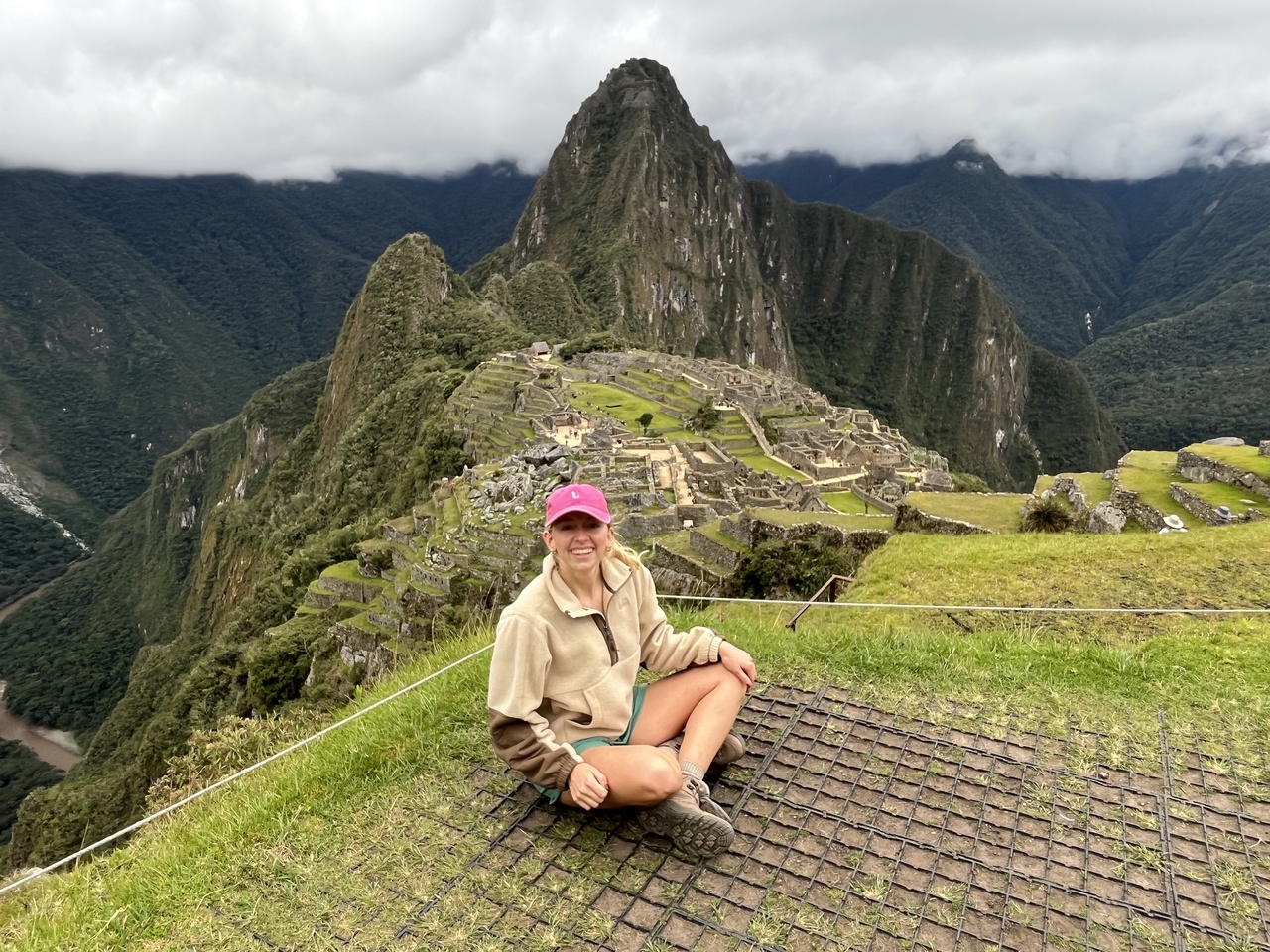I don’t have to tell you how bad it feels to arrive at your destination tired, drowsy, and unable to sleep for your first several days. Nobody wants to lose time on their vacation, feel unproductive at work, or be sick.
As the co-founder of Under30Experiences, a travel company for young people ages 21-35 I’m accustomed to long flights. Over the last decade, I’ve almost completely cured my symptoms of jet lag, and I want you to arrive at your destination feeling and looking your best!
In the following guide, I’ve outlined things I can recommend from my own experience. You don’t have to go as crazy as I do, but I want every advantage I can get versus jet lag.
In this guide to hacking symptoms of jet lag, you’ll learn:
- Best Flights to Reduce Jet Lag some text
- Best Planes to Fly to Minimize Jet Lag
- Seat Selection to Minimize Jet Lag
- Best Pillows for Air Travel
- How to Eat to Reduce Jet Lag
- How to Hydrate to Reduce Jet Lag
- How to Exercise to Reduce Jet Lagsome text
- Exercises to do on the airplane
- How to Workout upon Arrival
- How to Use Light to Beat Jet Lag
- How to Sleep to Defeat Jet Lag some text
- Tips for Sleeping on a Plane
- How to Nap to Overcome Jet Lag
- Supplements to Reduce Jet Lag
- Recovery Techniques to Help with Jet Lag
- Summary of Quick Tips for Jet Lag
Please consult a doctor before applying any of the following, especially if you have pre-existing medical conditions.
.jpeg)
Best Flights to Reduce Complications of Jet Lag
Flight Selection: Ask yourself, “Which of these flights will have the least detrimental impact on my body?” For me, this means not taking overnight flights and not waking up too early. Of course, we don’t always have this option, but when I can fly during the day, I always do. I leave for Buenos Aires in a couple of months and I was happy to find one of the only flights that didn’t fly through the night.
Sleep is our ultimate recovery tool. Waking up earlier than normal usually means less sleep the night before a flight. Don’t put yourself at this disadvantage. I cringe hearing travelers say they pulled an all-nighter or partied the night before their flight. Try to keep a regular sleep schedule for the local time zone.
Red-eye flights mean crappy sleep quality on the plane. I prefer to book daytime flights and push myself to stay up so I can fall asleep easily when it’s bedtime in my arrival city.
Best Planes to fly on to minimize jet lag:
When booking a flight, pay attention to what type of plane you’ll be flying on. If you can fly on the 787 Dreamliner or Airbus A350 do it. The Dreamliner is pressurized at a lower altitude and has a better filtration system, allowing the air to stay more humid. It’s a quieter plane and a better overall experience.
Airline Selection: The website Skytrax is a lifesaver. Be sure to fly a decent airline and read the reviews about your specific route.
I’m writing this on Japan Airlines in Economy to Tokyo. Before I booked, I read that JAL was a five-star airline and that Economy class on JAL was better than most American carriers’ Premium Economy class. I almost spent the money to fly Delta Comfort+ but after seeing photos of the seats, I knew I wouldn’t be getting much for the extra money.
Seat Selection to minimize jet lag: If you can afford lie-flat seats in First and Business Class consider it for long-haul flights. Your second-best option will be Premium Economy with seats that recline, stretch your legs, and have some space between you and your neighbor. Many Asian airlines have impressive Premium Economy options with nice footrests and wide seats.
Check SeatGuru reviews of your exact seat on the plane. Don’t make a rookie move and sit next to the bathroom or in a seat that doesn’t recline. If you want to stay up and move a lot, pick the aisle seat. If you like to sleep and prefer not to be disturbed, pick a window seat. If you sleep on your right side, choose the window seat on the right side of the plane. Most pro travelers will bring a neck pillow, earplugs, and a sleep mask.
Best Pillows for Air Travel
Look, I’ll be honest, I wish I had an incredible recommendation for you, but I’m still hunting for the best option. I don’t sleep well on planes, but here is a rundown of what's on the market.
The Pluto Pod: If you are looking for an innovative experience for sleep, then consider the Pluto Pod. This thing wraps around your entire head and puts you basically into a cocoon. It blocks light and noise and allows you to “be in your own space” I haven’t tried it yet personally, but before my upcoming trip to Korea, I plan to purchase it.
The Basic Neck Pillow: You have two options if you don’t want to spend much on a neck pillow. One that inflates and one that is filled with foam; one obviously takes up more room than the other in your luggage. The purpose of these pillows is to keep you from having a kink in your neck and waking up every time you nod off. In my experience, these are not the best.
The Sleeper Hold: This contraption isn’t a pillow, but actually a sleep mask that goes around the seat to keep your head fastened in place. The whole premise of the device is to keep you from having bobblehead. I think this would be better for people who sleep on their back, but I like to lay on my side, so I haven’t tried it yet.
Travel Rest Neck Pillow: This pillow seems to be designed for side sleepers and wraps diagonally around your body. If you sleep on your side, this neck and body pillow seems like it’d be for you. It’s inflatable so if the thought of carrying a body pillow around the world worries you, they’ve got you covered.
The J Pillow: This is another innovative pillow designed for side sleepers. It has over 15,000 reviews on Amazon, so it might be worth giving a shot!
How to Eat to Reduce Jet Lag
How to Eat Before Your Flight: It’s a good idea to come on a long-haul flight as healthy as possible, so do what's right for you. To me, this means avoiding fast food options at the airport and eating light. I don’t want to eat anything that is going to upset my stomach before the flight. For most people, this means avoiding fried foods, dairy, sugar, alcohol and caffeine, etc.
I always focus on being well hydrated, but not so hydrated that you have to pee every 5 minutes if you are trying to sleep. I try to refill a sustainable water bottle at the airport and use electrolytes like NUUN or better yet LMNT.
On the plane: Airplane food is normally carb-heavy and filled with salt. My carry-on bag is full of healthy snacks like protein bars, beef jerky, and macadamia nuts. Just be careful not to get fined going through customs with agricultural products!
Healthy meals in airports are easier to find these days. If you are a real freak, plan layovers in airports with healthy restaurants you find on Google.
Read More: A Dietician’s Best Snacks to Pack on an Airplane
When to eat when you arrive: First set your clock to the time zone where you will land and never look back. Avoid reminding yourself, It’s really 2 am back home.” That’s not going to help. Jet lag can be a psychological war!
Here is an often-overlooked strategy for hacking jet lag. Your body’s circadian rhythm is in part regulated by your gut. When you arrive, eat according to the local schedule precisely!
If you land at 10 pm feeling hungry, eat light and go to sleep a little hungry. This is not your normal dinner time. Wake up and treat yourself to an amazing breakfast at the time you’d normally eat. This is your body’s key signal that it’s time to wake up. Do not skip this step!
.png)
How to Hydrate to Reduce Jet Lag
How much: Dehydration is your biggest enemy on planes. Drink plenty of water. I drink 2-3x my normal daily consumption when traveling. That aisle seat comes in handy... Frequent bathroom breaks get the blood flowing! Be careful, however, not to pee out all your minerals. Add sea salt to your water to re-mineralize or take a electrolyte solution like LMNT. This is a critical point.
Pre-hydrate: Work on hydrating with really good quality water the day before your trip. No booze! I always try to drink a full liter of water before I go through the TSA checkpoint.
Exercise to Reduce Jet Lag
Exercises do to on the plane: While jet lag is mainly about your circadian rhythm, it’s clear that after air travel you just feel a little crappy. To reduce this general feeling of malaise, and reduce your risk of blood clots, keep the blood moving! I always get up and stand by the bathroom to do a few air squats, calf raises, toe touches, and arm circles! Embarrassed? Do them in the bathroom. Get your blood moving as often as possible. Walk around to keep the lymph moving.
The lymphatic system is one of your body’s main detoxification pathways. Moving will help you avoid cankels or worse yet, a blood clot. If you end up with cankles or the feet of a pregnant woman, put your legs up the wall when you arrive at your destination. A lymphatic massage or compression pants and socks will also combat this.
Workout to beat jet lag: Once you get to your destination, work out at the time your body is accustomed to exercising. If you are having trouble “shaking the cobwebs out” in the morning, then exercise upon waking. Get jacked up on your body’s favorite neurotransmitters, adrenaline and dopamine by exercising. Work out vigorously, but don’t overdo it. Break a sweat, get your heart rate up, and then call it quits. A good hotel room workout will suffice…. 15 minutes, as many rounds as possible, lunges, pushups, situps, planks, etc! It’s even better if you can get outside and be exposed to natural light.
.png)
How to Use Light to Beat Jet Lag
Get outside—naked!
Okay, do what you can here… Your objective is to get your body the light it needs to reset your circadian rhythm. The sun tells us to wake up and go to sleep. In the morning, get outside and get light directly into your eyes. Don’t stare at the sun, but get sun in your eyes to signal to your body it is daytime. No sunglasses allowed! Dr. Andrew Huberman is one of the world’s experts in this and always stresses getting an hour or more of morning and evening light as close to sunrise and sunset as possible.
He recommends using the Timeshifter App to reduce jet lag.
Block the Blue Lights: On the plane, if you are trying to fall asleep, be careful to dim the television in the seatback in front of you and put your phone, tablet, and computer in night mode. You can filter the blue lights on your computer with programs like f.lux or Iris. Blue lights tell your body it’s noon on a summer day and inhibit the production of melatonin--the sleep hormone. Get stylish and wear blue blocking glasses, or just wear sunglasses, a hat and hood to shield yourself from the fluorescent lights and hundreds of tv screens around you. I always do this in the airport!
.png)
How to Sleep to Beat Jet Lag
Sleeping pills for Jet Lag
I know, I know... it’d be so much easier to take sleep medicine and be done with this article. Unfortunately, sleep aids knock you unconscious and don’t give you the natural sleep cycles that are so important for recovery. There are a plethora of pills to knock you out on a plane, but that’s between you and your doctor, and you’ll never want to mix them with alcoholic beverages.
Sleeping on a plane
Get ready to build your nest. My essentials are a pillow, blanket, eye mask, earplugs, and Bose Noise Cancelling Headphones. Don’t hesitate to be weird. If you’ve read this far, you already know I am! Maybe go for the blanket over the head technique or head down on the tray table strategy. Flight attendants have seen it all.
How to Nap to Overcome Jet Lag
Even if you are exhausted after your flight, fight the urge to nap. It’s much better to stay awake and then sleep once it's bedtime. There is a good chance you won’t be able to wake up from your nap, and then you’ll never be able to sleep at night! Remember that you're trying to reset your body clock.
If you can’t sleep—meditate or do yoga nidra (NSDR; Non Sleep Deep Rest). Do what you can to relax and activate your parasympathetic nervous system. If you are a nervous flier, this will help!
Supplements to Reduce Jet Lag
Now we are getting advanced, so consult with your doctor. I’ll tell you my strategy, and you can take it or leave it.
My focus is to keep my immune system strong and fight free radical damage. Flying is hard on your body—supplements can mitigate the wear and tear.
- Zinc—you are flying in a tube full of foreign germs and recycled air. You can take zinc a few times per day to support your immune system. Just be careful not to take it on an empty stomach.
- Vitamin D—I know you’ll probably try to get some sun on your trip, but if it’s winter time you are probably already deficient! Vitamin D is critical to immune function. Remember too, to get out into the morning light.
Melatonin--your body naturally produces this hormone to tell your body when to go to sleep. Most supplements have several times what your body naturally produces, but that might be necessary if your body needs a hard reset. I break a 1mg pill into quarters and sleep like a baby. You might need much more!
Recovery Techniques to Help with Jet Lag
These aren’t scientifically proven techniques specifically for jet lag, but the point of this section is to give you some tools to help you feel better when you land!
- Breathing—any type of yogic breathing is going to help re-oxygenate your body. Flying in pressurized cabins has a similar effect to the one that altitude sickness has on the body. Take lots of deep breaths. Dr. Sachin Panda, scientist and author of The Circadian Code... recommends using a nasal turbine or a Breathe Right strip like a football player to allow your body to take in more oxygen.
- Cold therapy—cold baths or cryotherapy have tons of benefits boosting your energy with dopamine and adrenaline, to helping fight lethargy or depression. Cold therapy has similar effects on neurotransmitters as exercise with none of that pesky running around stuff.
- Saunas—another way to get the hormetic effects of exercise just sitting there. They are excellent for detoxification and sweating it out. When I land in Bangkok, I’ll go to the Pañpuri Onsen Spa, for a combination of hot and cold therapy with their mineral-rich Onsen baths.
By now, you most likely think I’m a lunatic... But here’s the deal—most of this stuff has a lot of upside and very little downside. Again, check with your doctor, especially if you are going to use supplements or recovery techniques long-term. I don’t do all these things every day.
Summary on How to Beat Jet Lag
Do what’s right for your body. Aging, jet lag, and fatigue don’t have just one cause, and what works for me may not work for you. It’s your job to explore your own resiliency. Take the best possible care of yourself if you want to recover quickly.
Jet lag Tips for Flying East
Start waking up 30-60 minutes earlier than normal to set back your circadian rhythm. Get outside and exercise first thing, even if it is just going for a walk for a couple of days before your trip. Have caffeine earlier in the day to start getting adjusted to the time zone you plan to be.
Jet lag Tips for Flying West
Shift your schedule 30-60 minutes later than normal to move your body clock forward. That means try to sleep in, delay the light in your eyes, delay your caffeine, and exercise a bit later than you normally would.
If you asked me my Top 5 Quick & Dirty Jetlag tips, I’d say...
1. Get light in your eyes upon arrival, especially in the morning.
2. Eat to tell your body what time it is
3. Exercise
4. Stay hydrated
5. Try melatonin




.avif)












.jpg)













